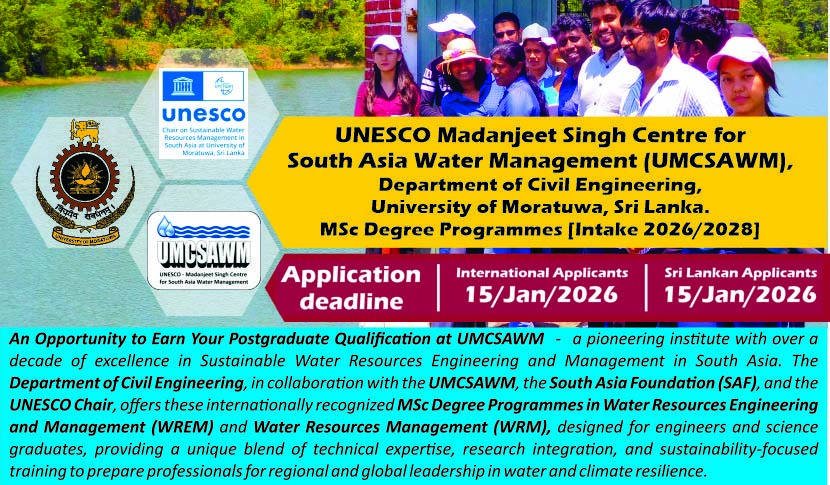
Prof. Lalith Rajapakse Represents Sri Lanka at the 32nd UNESCO IHP Regional Steering Committee Meeting for Asia and the Pacific in Hanoi, Vietnam
Prof. (Eng.) R. L. H. Lalith Rajapakse, Centre Chairman/Director-UMCSAWM and Chairholder of the UNESCO Chair on Sustainable Water Resources Management in South Asia at Univerity of Moratuwa, represented Sri Lanka at the 32nd Session of the UNESCO International Hydrological Programme (IHP) Regional Steering Committee for Asia and the Pacific (RSC-AP), held from 21–23 October 2025 in Hanoi, Viet Nam.
Organised by the Viet Nam Institute of Meteorology, Hydrology and Climate Change (IMHEN) under the Ministry of Agriculture and Environment, the meeting brought together representatives from UNESCO Water Family institutions, IHP National Committees, and experts from across the region to exchange scientific knowledge and discuss collaborative initiatives on water science, management, and climate resilience.
The UNESCO IHP, now in its 50th year of global service, remains UNESCO’s flagship intergovernmental programme dedicated to advancing hydrological science, capacity development, and water education for sustainable development. Over six decades, the UNESCO Water Family has evolved into a global network connecting research, education, and policy institutions to address water security challenges under changing climatic conditions.
In Sri Lanka, the Sri Lanka National Commission for UNESCO (SLNCU) has designated the UMCSAWM as the official IHP National Focal Point, recognising its leading role in water research and education. At the meeting, Prof. Rajapakse presented the Sri Lanka Country Report, the UMCSAWM Annual Report, and the UNESCO Chair Report, and participated in plenary sessions contributing to the regional discussion on IHP-IX priorities.
During the visit, he also met with officials of the National Centre for Water Resources Planning and Investigation (NAWAPI), exploring collaborative opportunities in hydrological data management, groundwater monitoring, and climate adaptation. The visit is expected to yield significant benefits for Sri Lanka’s national water sector and strengthen UMCSAWM’s international partnerships.












Copyright © 2026 UNESCO Madanjeet Singh Centre for South Asia Water Management
WordPress Theme by WPZOOM

